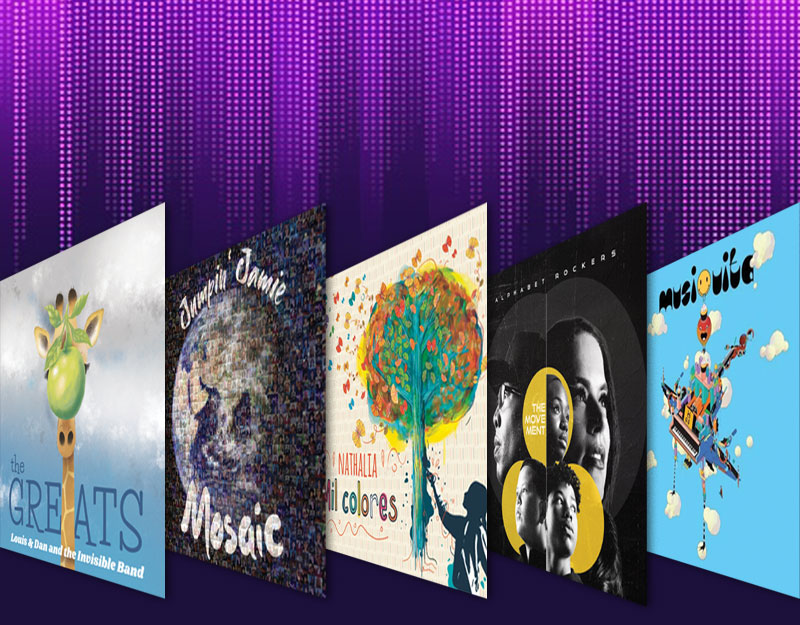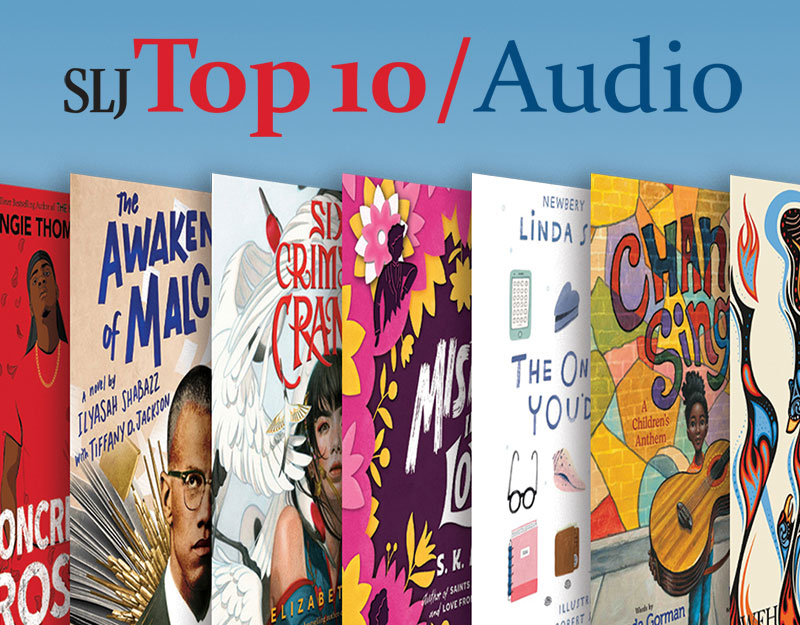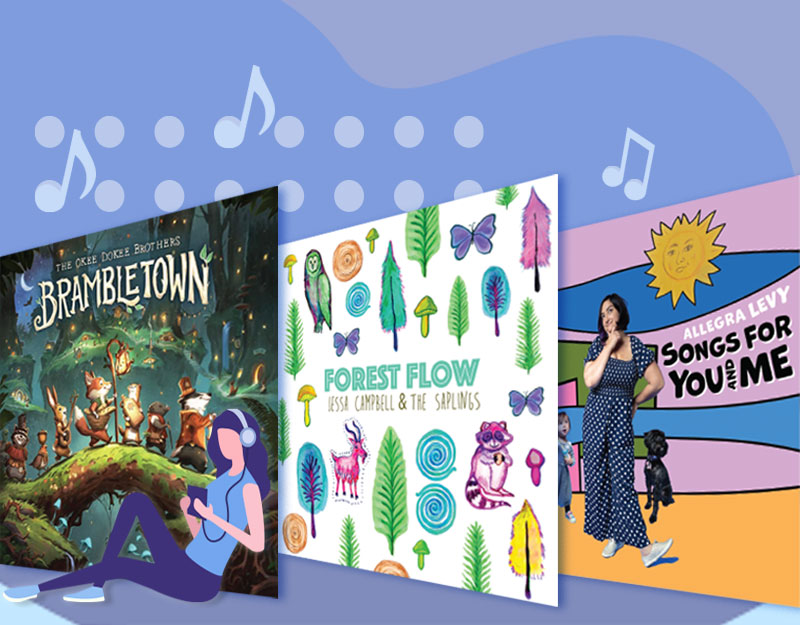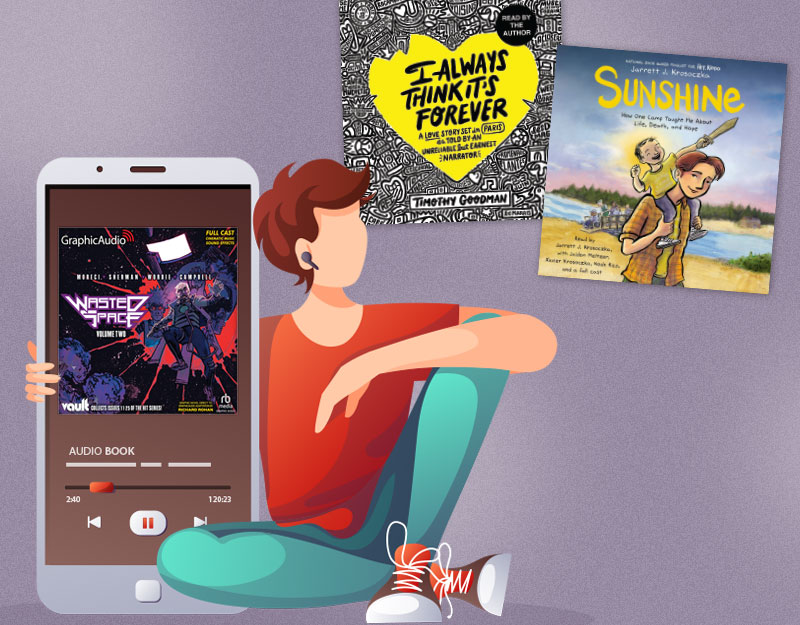The Unreliable Narrator in the Picture Book Format
 I was listening to one of my favorite podcasts, Pop Culture Happy Hour where employees of NPR dissect some aspect of pop culture in a smart and funny way each week. The show works for me because as I age I become worse and worse at knowing what is out there and this show allows me to keep my finger on the pulse of youth with the additional benefit of a thick veneer of class. A recent podcast spent half its time dissecting the Mad Men debut and the other half discussing the idea of the unreliable narrator in film, books, and music.
I was listening to one of my favorite podcasts, Pop Culture Happy Hour where employees of NPR dissect some aspect of pop culture in a smart and funny way each week. The show works for me because as I age I become worse and worse at knowing what is out there and this show allows me to keep my finger on the pulse of youth with the additional benefit of a thick veneer of class. A recent podcast spent half its time dissecting the Mad Men debut and the other half discussing the idea of the unreliable narrator in film, books, and music.
Listening to the talk, it sounds as if the unreliable narrator breaks down into at least three different types: The narrator that purposefully leads you astray, the narrator whose view of the world is so strident that by sheer force of will they are attempting to lead you astray, and the narrator who does not attempt to lead you astray but does by dint of their youth and inexperience. And though they cited mostly The Catcher in the Rye and Room as examples of that last type, I found myself drifting into thinking about how this applies to the picture books of the past and the present.
ADVERTISEMENT
ADVERTISEMENT
This isn’t just idle speculation. With the rise of the Core Curriculum kids are beginning to learn more about opposing viewpoints and alternative perspective. They’re walking into libraries asking for first person narratives in picture book formats. Which means, it might not be long before savvy teachers start to provide elementary school insights into what is a remarkably advanced concept.
On the aforementioned podcast, Glen Weldon says the following: “It [the unreliable narrator] puts you in the head of somebody else… it exaggerates your faults. Where YOU think the world is this way and you’re willing to kind of assert it until the dam busts. And it’s a way to teach a moral lesson without doing it in a very heavy-handed way . . . It’s the ultimate post-modern thing where this thing we’ve trusted for centuries, the narrative voice, is now called into question.”
This caught my ear since picture books are, in some cases, meant to be repositories of moral lessons. And if a person can give a moral lesson without didacticism they are seen as doing a very good job. I am starting to write picture books myself. Now imagine being able to write for kids and impart ideas without sounding preachy. It can be done! Examples?
The True Story of the Three Little Pigs by Jon Scieszka, illustrated by Lane Smith – If you Google the term “unreliable narrator” and “picture books” this is pretty much the only thing that comes up. Probably because it’s the best of the genre. If Scieszka is remembered for nothing else it will be for applying sophisticated ideas to picture books, ending with products that both inform and amuse kids and adults (keep a VERY sharp eye out for his Battle Bunny this fall, co-written with Mac Barnett, and a game changer in a different way altogether). Of course no brilliant idea comes without a price. This book started the trend of villains telling their sides of their tales in picture books. It’s an idea we’re still suffering through, to a certain extent.
I Want My Hat Back by Jon Klassen – Interesting because it’s actually a shift. The narrator begins as reliable and then becomes unreliable by the end of the book. Is this a tale about the hero’s journey? Or is it actually the hero’s fall? All I care is that the bunny had it coming.
ADVERTISEMENT
ADVERTISEMENT
This is Not My Hat by Jon Klassen – I didn’t mean to cite the most recent Caldecott Award winner but the Horn Book referred to this as a book featuring an unreliable narrator. I would argue that it’s not so much that he’s unreliable as much as he’s just wrong.
Olivia Saves the Circus – If Scieszka’s wolf is the kind of narrator trying to lead you astray then Olivia is a force of will, attempting to make you believe precisely what she too wants to believe. She tests the tensile strands of precocious tolerance and gets away with it. Probably because the text is so good on this one. My favorite Olivia book, bar none.
Dear Mrs. LaRue: Letters From Obedience School – Author Mindy Hardwick came up with this one (read her post for suggestions on writing an unreliable narrator if you’re interested in making your own). This book has the dual advantage of not only being unreliable but an epistolary picture book as well. Kids ask for such things already.
Mention the others if you can! I wouldn’t mind putting together a list of as many as folks can conceive of. It would be interesting to note the years they started becoming more common.
Filed under: Uncategorized
About Betsy Bird
Betsy Bird is currently the Collection Development Manager of the Evanston Public Library system and a former Materials Specialist for New York Public Library. She has served on Newbery, written for Horn Book, and has done other lovely little things that she'd love to tell you about but that she's sure you'd find more interesting to hear of in person. Her opinions are her own and do not reflect those of EPL, SLJ, or any of the other acronyms you might be able to name. Follow her on Twitter: @fuseeight.
ADVERTISEMENT
ADVERTISEMENT
SLJ Blog Network
One Star Review, Guess Who? (#202)
Exclusive: Giant Magical Otters Invade New Hex Vet Graphic Novel | News
Parsing Religion in Public Schools
Take Five: LGBTQIA+ Middle Grade Novels
ADVERTISEMENT








I think Allan Ahlberg’s “The Bravest Ever Bear” may count – it has multiple narrators, but when the bear takes over from the first narrator, he’s unreliable. But I’m not sure if a meta book really fits into this category (if so, both TBEB and “The Monster At The End of This Book” would count, no?).
I JUST finished reading another book of his, The Runaway Dinner, and I wonder the same thing about its narrator. Not multiple, but definitely gives you exaggerated information and then fixes it on the next page. The reader (me!) was certainly wary after a couple of those episodes. Loved it.
Well, I suppose an unreliable narrator might trace all the way back to “And To Think That I Saw It On Mulberry Street,” eh?
Mulberry Street was one of my favorites as a kid, and yes. It’s a great great example.
I’d like to find some books more of the chapter book and YA variety that use this unreliable narrator. Anyone?
YA is easy but middle grade chapter is difficult. We don’t really have that many Pale Fires, if you know what I mean. I’ll wrack my brain accordingly. It feels like we should have a couple out there.
How about Rebecca Stead’s “Liar and Spy” for a middle grade chapter book? Not a fully unreliable narrator, but there are major things he isn’t telling the reader, and it’s not obvious at all until you get near the end.
Liar and Spy made me think about two others – these were written for adults but could certainly be taught to middle schoolers and teens, and I would definitely recommend them to anyone looking at unreliable narrators because I think they’re masters of the genre:
SPOILER SPACE (because saying they have unreliable narrators gives away major plot points):
–
–
–
–
–
–
–
–
–
–
–
Agatha Christie’s “The Murder of Roger Ackroyd” and “Curtain” (a.k.a. “Poirot’s Last Case”).
The readers should not know these are unreliable narrators until they’ve finished the books, because in both cases it is a giant surprise. ‘Nuff said.
argh, sorry — my spoiler space got deleted!! Betsy, if you happen to be able to insert spoiler space, or the word ‘spoiler’ running vertically for a few lines, I wouldn’t feel as bad. Didn’t mean to ruin classics.
Hey, no problem. Consider the space re-added.
Thanks, Betsy! (also, I love that you listen to my favorite podcast. I got way behind and need to listen to this episode!)
Your point is well taken. That is exactly why I started my nonfiction picture book series to make learning about history informative and fun. I have chosen to use a reliable narrator to set the stage for further investigation.
I was recently introduced to Toby Forward’s The Wolf’s Story: What Really Happened to Little Red Riding Hood — again, a villain with a story to tell. The illustrations help tell another version, though.
As to a middle grade novel with unreliable narrator, how about Timmy Failure: Mistakes Were Made by Stephen Pastis (Walker Books). Timmy is convinced of his own popularity and general brilliance.
In the picture-book category, Gilles Bachelet’s My Cat, the Silliest Cat in the World (originally published in French as Mon Chat Le Plus Bête du Monde) should be added to this list. It’s a picture book about a pet cat according to the text, but a pet elephant according to the pictures. We might read the tension between word and image as a comic metaphor for an especially destructive cat, but the images also provide evidence that what others perceive as elephants our narrator incorrectly labels as “cat.” Mike Lester’s A Is for Salad offers a less subtle but still comic variation on this idea. Accompanying the title illustration, Lester shows an alligator eating salad; “B is for Viking” describes a beaver wearing a Viking helmet. And so on. As JMyers’ comment reminds us, And to Think That I Saw It on Mulberry Street is the first of Seuss’s narrators, and the first prone to exaggeration. Later examples appear in McElligott’s Pool, If I Ran the Zoo, and If I Ran the Circus.
In chapter books, Tove Jansson’s Moominpappa’s Memoirs has moments of unreliability. Two better-known examples with much more unreliability: J. M. Barrie’s Peter and Wendy and E. Nesbit’s Story of the Treasure-Seekers. Oswald Bastable (the narrator of the latter) is delightful, as are E. Nesbit’s narrators generally.
Thank you, Phil! I’m fascinated by the possibilities in Bachelet’s book. I’d heard of Lester’s book but had forgotten it entirely. I can always rely on you to come with the goods when I speculate out loud.
Speculating out loud is what blogs are made for! And these are good speculations. I think you’d enjoy Bachelet’s book — or, perhaps you already do. (I don’t know whether you know it. I only discovered it recently, via Sandra Beckett’s recommendation.)
Could Don & Audrey Wood’s _The Little Mouse, the Red Ripe Strawberry, and the Big Hungry Bear_ fall under this category? I think it’s up for speculation whether the “narrator” of that picture book is entirely truthful, or is just tricking the mouse out of its strawberry.
As for middle grade fare: Kate Thompson’s _Highway Robbery_, and of course Megan Whalen Turner’s _The Thief_.
More middle-grade (deliberately deceptive): The False Prince.
I have two picture books in mind that might fit into this category–Emma Kate by Patricia Polacco and Green Wilma by Tedd Arnold. In both cases the narrator or main character turns out to be something completely different from what the reader expected.
Ahem — “Poor Puppy”
Oh. Well played, Bruel. Heck, large chunks of the series would apply.
Great recommendations. Thanks!